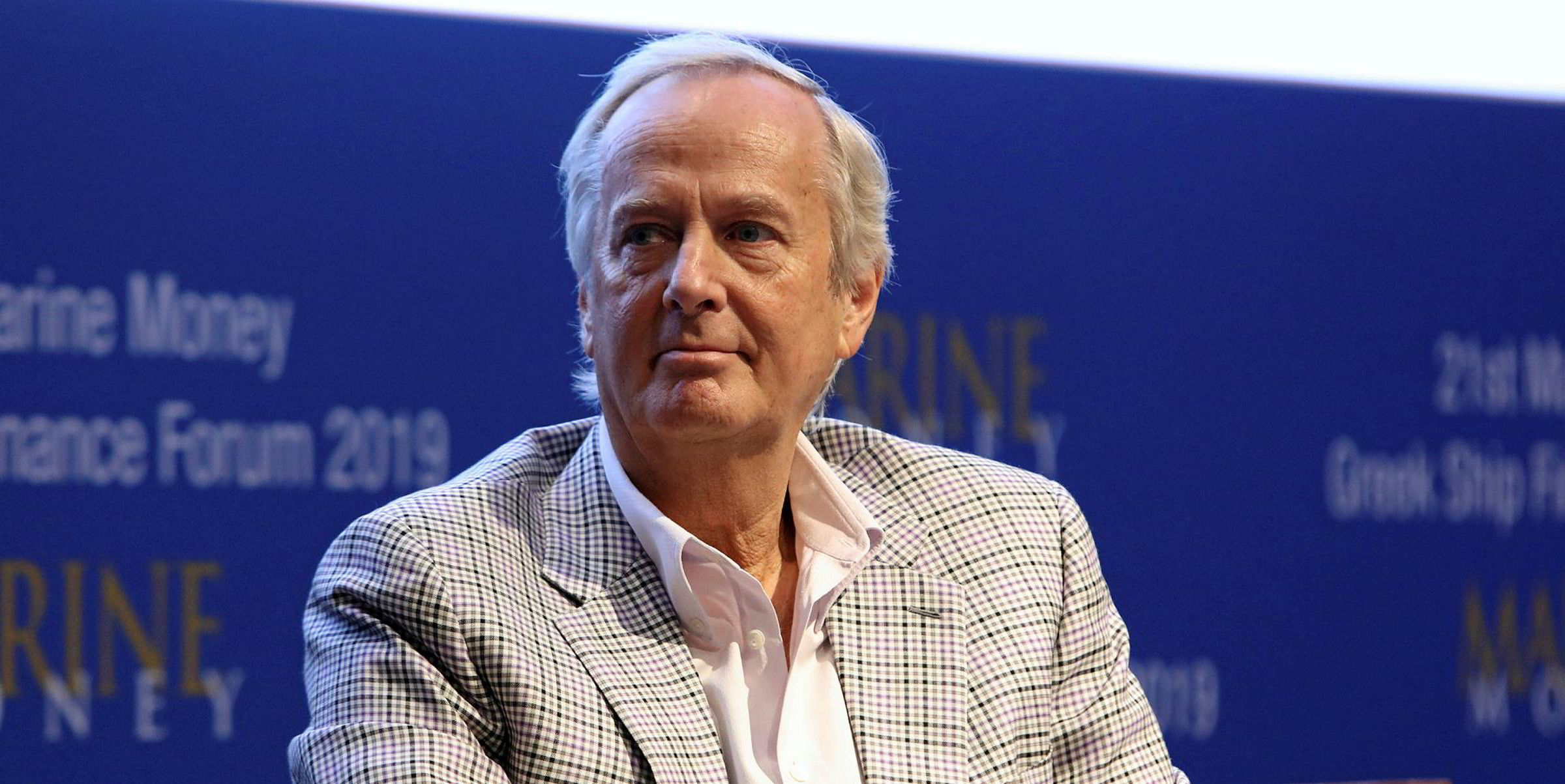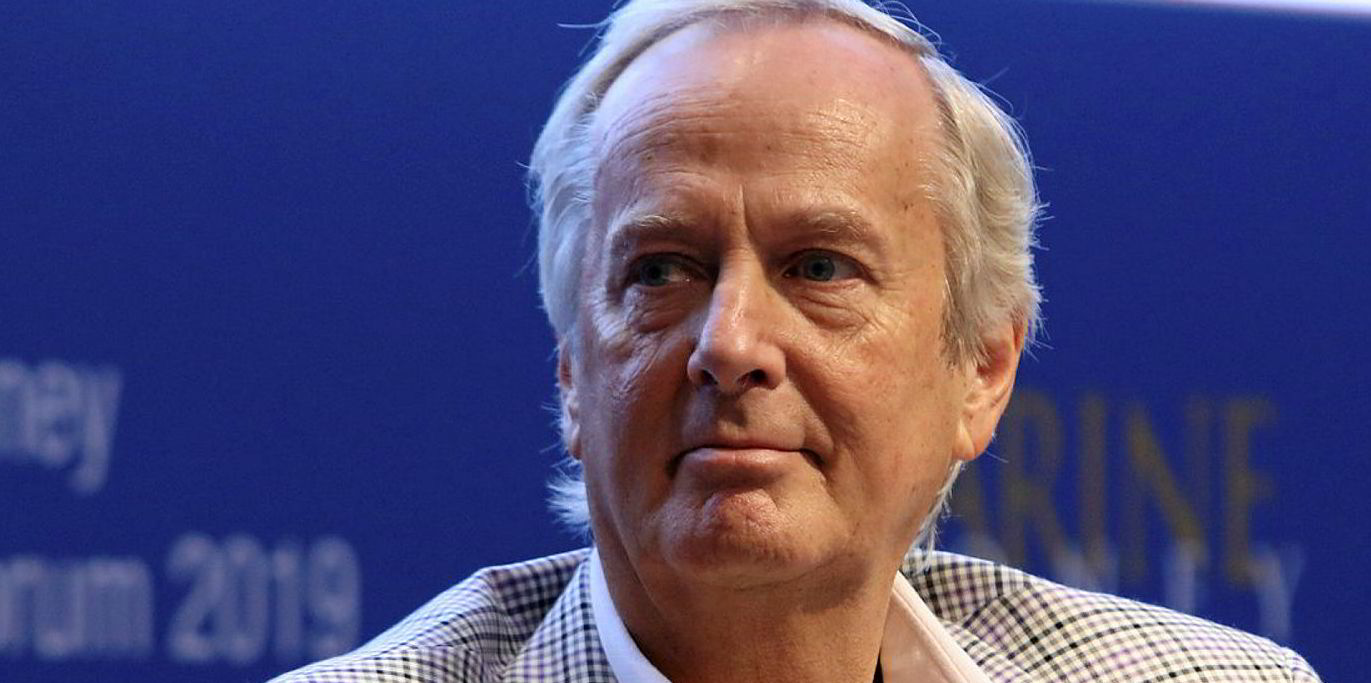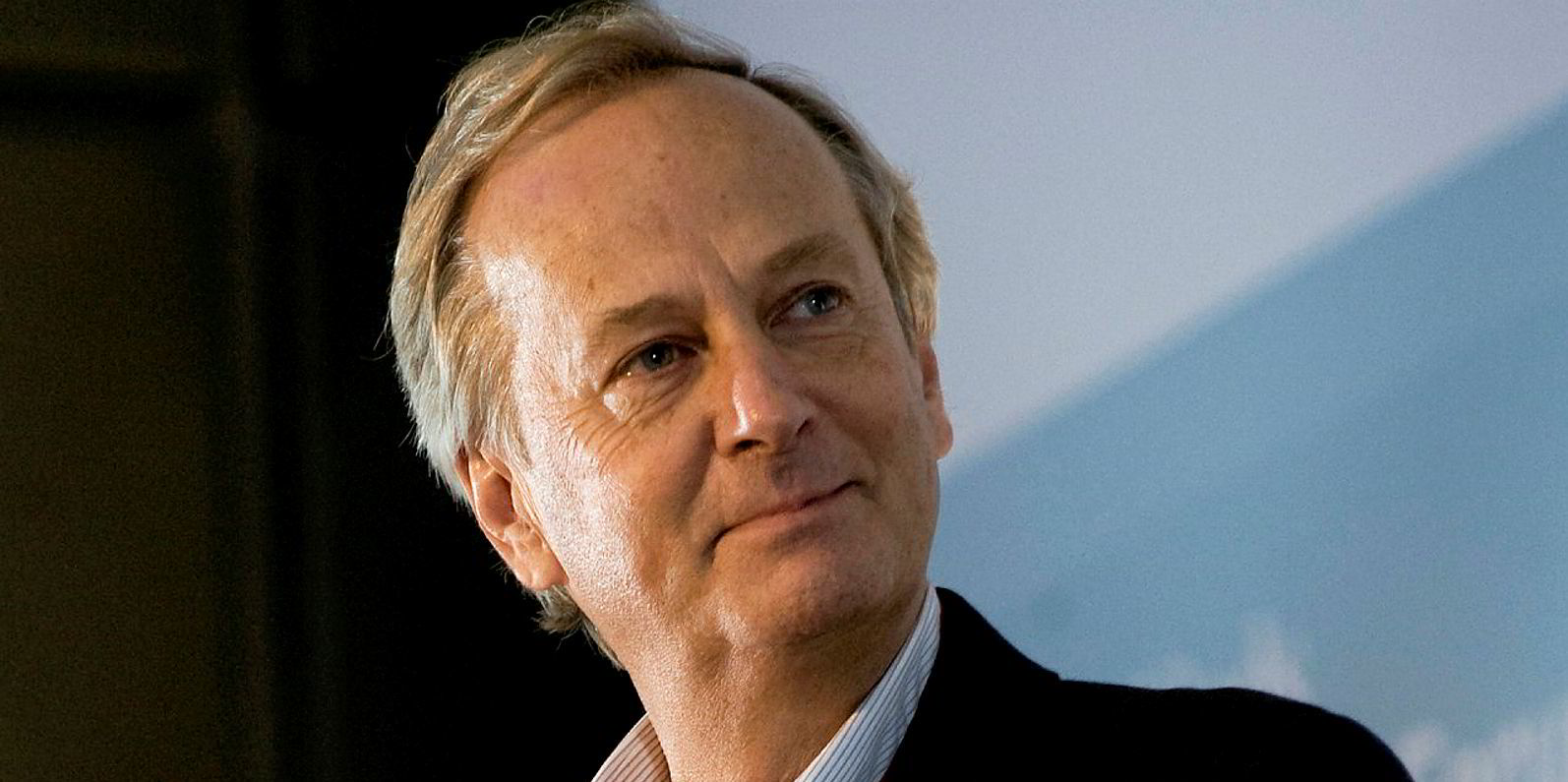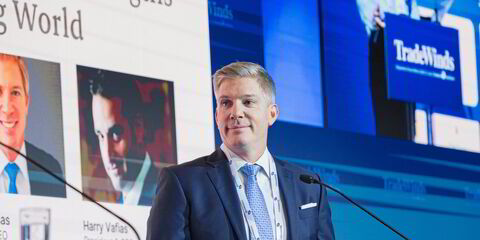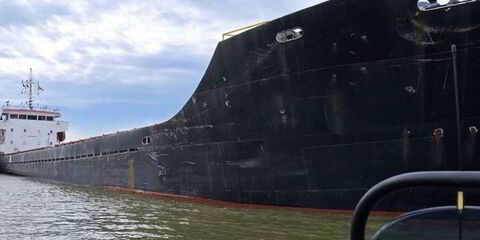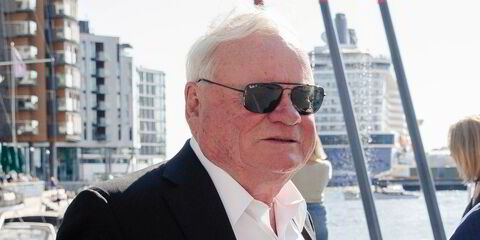The golden era of great Greek shipowners is not likely to be repeated.
Says who? None other than the man once known as “the Golden Greek”, George Economou himself.
Speaking at what was billed as his final appearance at a shipping finance conference at a session in New York, Economou expressed his doubts in an interview with Marine Money founder Jim Lawrence.
“Yes, I think it is [over],” Economou said of the era of giants such as Onassis and Niarchos.
“We’re all glorified taxi drivers.”
Economou was the conference’s featured speaker weeks after he completed taking his New York-listed DryShips private following more than 14 years as a public company.
It was a wild ride that featured high highs, as he recounted a day during the boom market of 2006-2008 when DryShips actually traded a higher volume than Google.
And it also featured low lows, as DryShips eventually lost more than 99% of its share capital.
It is currently defending a shareholder lawsuit alleging securities fraud in the US over its dealing with Kalani Investments and a US Securities and Exchange Commission (SEC) inquiry into the same relationship.
DryShips and Economou have denied any wrongdoing and moved to have the lawsuit dismissed.
Asked briefly about the importance of corporate governance, Economou’s response was brief.
“[Investors] care, and they should,” Economou said. “But at the same time, they should look at the entrepreneur. You just have to pick the right horse.”
Economou expressed belief in a sustainable dividend model and low financial leverage as the best approach for a public company.
“You need probably 20% [leverage] if you have a consistent dividend,” he said.
“[With a dividend] most of the time the stock is valued above [net asset value] so in theory you can always issue more money,” he said.
Economou referenced Herbjorn Hansson’s Nordic American Tankers (NAT) as a prime example.
“NAT did it, but somehow they just blew it up. They had the perfect model and they didn’t continue on it.”
On the topic of carbon emissions, Economou said shipping is still struggling to determine what its next fuel will be in order to meet reduction standards imposed by the IMO in 2030 and 2050.
He is not a believer that LNG is the answer.
“There’s nothing on the horizon now, it’s just talk,” he said. “I don’t think anyone knows what the next fuel is going to be today. But this is going to be a problem. It’s not going to happen fast.”
Economou also suggested that while he might be done with public markets, he is not done with shipping. Still, he let on that he might decide a different course — artificial intelligence or information technology — as a young man just out of university today.
This led to his advice to millennials considering entering the sector.
“You have to like it to do it, otherwise you’re not going to be successful,” he said.
“But if you have the opportunity to do something else, you might as well.”(Copyright)
